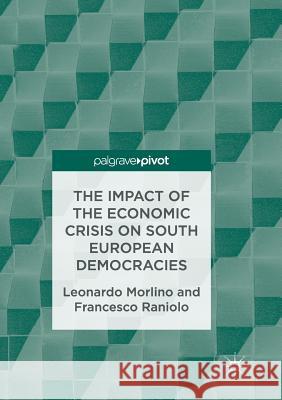The Impact of the Economic Crisis on South European Democracies » książka
topmenu
The Impact of the Economic Crisis on South European Democracies
ISBN-13: 9783319848884 / Angielski / Miękka / 2018 / 142 str.
Kategorie BISAC:
Wydawca:
Palgrave MacMillan
Język:
Angielski
ISBN-13:
9783319848884
Rok wydania:
2018
Wydanie:
Softcover Repri
Ilość stron:
142
Waga:
0.19 kg
Wymiary:
21.01 x 14.81 x 0.84
Oprawa:
Miękka
Wolumenów:
01
Dodatkowe informacje:
Wydanie ilustrowane











